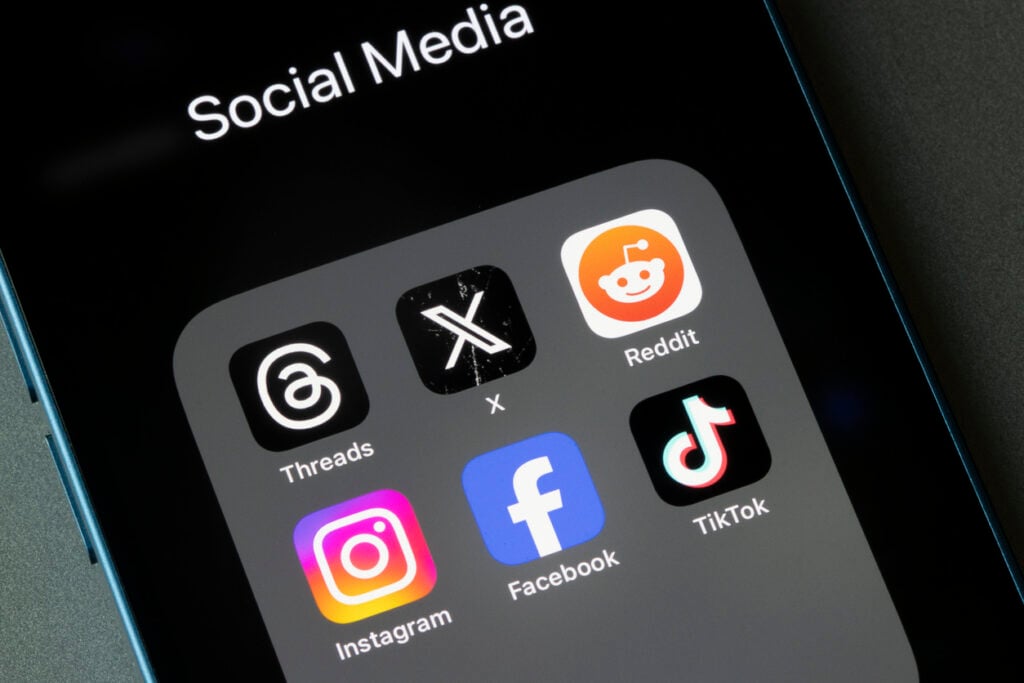Every generation thinks they had it harder.

Boomers and Gen Z have grown up in vastly different worlds and have faced vastly different challenges, neither generation has had an easy path.
Economic shifts, social changes, and technological advancements shape each era in unique ways, bringing both opportunities and hardships. Boomers dealt with political turmoil, traditional societal pressures, and economic recessions, while Gen Z faces digital burnout, financial instability, and a rapidly changing job market.
Instead of arguing over who had it worse, let’s break down the defining struggles of each generation and see where the biggest challenges truly lie.
1. Boomers faced economic struggles, but Gen Z faces financial uncertainty.

Boomers grew up during a time of economic expansion, but many still experienced financial struggles in their early years. Post-war economic shifts, oil crises, and high inflation made it difficult for some to build financial stability. However, affordable housing, pension plans, and steady job markets helped many Boomers eventually achieve financial security.
Gen Z, on the other hand, faces an entirely different financial landscape. Stagnant wages, skyrocketing student debt, and an out-of-reach housing market make financial independence harder to achieve. The traditional path of working hard, saving, and buying a home isn’t as accessible, leaving many feeling stuck in an uncertain economic future, according to Spinnr.
2. Gen Z faces online activism burnout, while Boomers dealt with social upheaval.

The Boomer generation lived through major social movements, including the civil rights movement, second-wave feminism, and anti-war protests. Many Boomers actively participated in activism, facing real-world dangers like police brutality and political backlash. Their struggles helped shape the modern freedoms and rights that younger generations benefit from today.
Gen Z, while also deeply involved in activism, faces a different kind of struggle—digital burnout. With constant exposure to global crises through social media, many young people feel overwhelmed by the sheer volume of issues demanding their attention. The pressure to stay informed and engaged can lead to anxiety, helplessness, and emotional exhaustion.
3. Boomers had fewer mental health resources, while Gen Z battles an epidemic of anxiety.

Mental health awareness was almost nonexistent during the Boomer era. Many were expected to “tough it out,” and therapy or medication carried a heavy stigma. Depression, PTSD, and anxiety were often dismissed or misunderstood, leaving many to suffer in silence without proper support or treatment.
According to Axios, Gen Z has access to more mental health resources than any previous generation. However, they also face unprecedented levels of anxiety, depression, and stress. The rise of social media, climate concerns, and financial instability contribute to a widespread mental health crisis, making it one of the most pressing struggles of their generation.
4. Gen Z faces job market instability, while Boomers had stable career paths.

Boomers entered a workforce that valued loyalty and long-term employment. Many were able to build stable careers with pension plans, job security, and predictable growth. While not all jobs were glamorous or high-paying, the path to a comfortable retirement was relatively straightforward compared to today.
Gen Z, however, is entering an economy where job security is far from guaranteed. The rise of gig work, automation, and corporate layoffs means that stability is harder to find. Many young workers juggle multiple jobs, freelance work, or side hustles just to make ends meet, leading to constant uncertainty about their future.
5. Boomers had to work harder for information, while Gen Z struggles with information overload.

Before the internet, Boomers relied on libraries, newspapers, and word-of-mouth to gather information. Learning a new skill or researching a topic took significant effort, requiring patience and determination. Misinformation still existed, but it spread more slowly, allowing people to fact-check with relative ease.
Gen Z, on the other hand, has access to an overwhelming amount of information at all times. While this can be an advantage, it also creates decision paralysis, misinformation, and endless distractions. Sorting through conflicting news sources, biased reporting, and social media opinions makes it harder than ever to determine what’s true.
6. Boomers had more personal privacy, while Gen Z lives under constant digital scrutiny.

Boomers grew up in a world where mistakes were largely forgotten with time. Without social media, youthful missteps weren’t permanently recorded or scrutinized. People had the chance to reinvent themselves without a digital trail following them into adulthood.
Gen Z, however, lives in a time where every action is documented online. Social media posts, photos, and even private messages can resurface years later, impacting job prospects and reputations. The pressure to maintain a “perfect” online presence adds an extra layer of stress that previous generations never had to consider.
7. Boomers had stricter societal expectations, while Gen Z faces identity pressure.

Boomers were raised with rigid societal norms dictating their roles in family, career, and personal life. Expectations around gender, marriage, and work were strictly enforced, and those who deviated often faced discrimination or ostracization. Conforming was often seen as the only path to success.
Gen Z, while benefiting from greater freedom of self-expression, faces a different kind of pressure—constant identity scrutiny. Social media and online discourse often create unrealistic expectations around personal identity, activism, and self-branding. The freedom to define oneself comes with the burden of endless choices and public judgment.
8. Boomers had a more physically active lifestyle, while Gen Z faces sedentary health risks.

For Boomers, outdoor play, physical labor, and face-to-face interactions were the norm. Without smartphones or streaming services, their daily lives involved more movement. Many worked in physically demanding jobs or walked more frequently than today’s younger generations.
Gen Z, however, faces the health risks of a sedentary lifestyle. Hours spent on screens, remote work, and digital entertainment contribute to physical inactivity, leading to rising obesity rates and related health issues. While gyms and fitness apps exist, maintaining an active lifestyle requires conscious effort in today’s digital world.
9. Boomers had more affordable higher education, while Gen Z struggles with student debt.

Higher education was significantly more affordable for Boomers, allowing many to attend college without taking on massive debt. Tuition costs were relatively low, and scholarships or part-time jobs could cover a significant portion of expenses. Graduating debt-free was a realistic goal.
Gen Z, however, faces an entirely different reality. College tuition has skyrocketed, and student loans have become a financial burden that follows many well into adulthood. The pressure to earn a degree despite mounting costs adds stress and uncertainty, making financial stability harder to achieve.
10. Boomers had fewer distractions, while Gen Z battles constant digital stimulation.

Boomers grew up in a world without smartphones, social media, or streaming services. While entertainment options existed, they were limited, allowing for more focused time on work, hobbies, and personal relationships. There were fewer distractions pulling them away from real-life experiences.
Gen Z, on the other hand, lives in a hyper-connected world where attention is constantly being hijacked. Social media notifications, endless scrolling, and digital entertainment make it difficult to focus or disconnect. The ability to truly be present in the moment is a struggle in an era of 24/7 connectivity.
11. Boomers had stronger community ties, while Gen Z struggles with loneliness.

Boomers often lived in tight-knit communities where neighbors looked out for each other. Without digital distractions, social interaction happened face-to-face, fostering deeper relationships. Support networks were more localized, helping people navigate life’s challenges together.
Gen Z, despite being more digitally connected than ever, faces an epidemic of loneliness. Social media often replaces real-world interactions, and many young people struggle with deep, meaningful relationships. Online connections can feel superficial, leaving them craving genuine human interaction that past generations took for granted.
